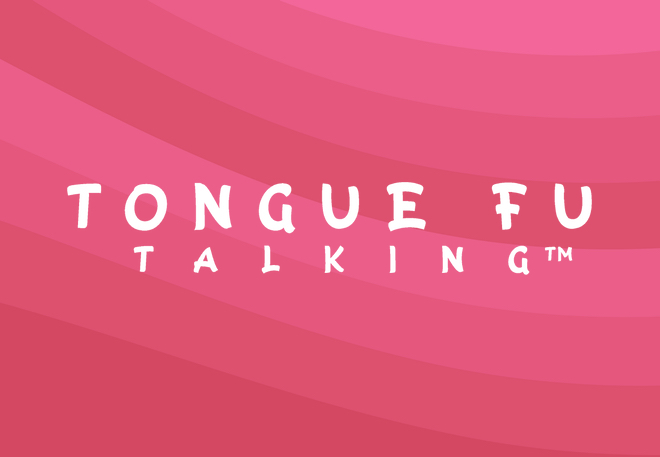

Introduction
Oracy is not a subject in its own right, but it is fundamental to learning across all subjects. Ofsted’s 2024 English subject report highlights that while schools often have well-structured approaches to reading and writing, spoken language is less effectively planned and taught. It states:
“Schools recognise the importance of spoken language but often lack clarity on how to teach the conventions of spoken English” (Ofsted, 2024).
The challenge is that oracy is rarely given a structured place within the curriculum. Too often, it is left to occasional activities or generic conversations that, while enjoyable, do little to build knowledge or deepen understanding. Tongue Fu Talking™ was designed to address this gap through a structured framework built around two main strands:
Explorer Mode: Talk for reasoning, discovery, and collaborative thinking.
Presenter Mode: Talk for expressing ideas with clarity, substance, and confidence.
These strands ensure that oracy is not just about speaking well, but about thinking well and applying talk purposefully across every subject.
Why Occasional Oracy Activities Fall Short
Some oracy schemes rely on occasional philosophical discussions or ‘sticky questions’—such as “What is happiness?” or “If you could live anywhere, where would it be?” While these questions may encourage students to speak, they often:
- Eat up valuable curriculum time without contributing to the development of disciplinary knowledge.
- Fail to build academic vocabulary or subject-specific reasoning skills.
- Favour advantaged pupils, who bring richer background knowledge and cultural capital to abstract topics (Hirsch, 2016).
- Lack structure or progression, leaving little long-term impact.
As Willingham (2009) notes, “Thinking well requires knowing facts; without factual knowledge, higher-order thinking is impossible.” If pupils lack the content knowledge to engage meaningfully with philosophical questions, discussions can quickly become superficial.
Philosophy has its place in Spiritual, Moral, Social and Cultural (SMSC) provision, but when oracy is framed around these occasional, unstructured sessions, it risks becoming a nice-to-have rather than a powerful tool for learning.
Oracy Supports Disciplinary Knowledge
One of the main benefits of oracy is to help pupils develop vocabulary and the disciplinary knowledge of a subject expert. For example:
- In geography, pupils should talk like geographers: analysing maps, inferring climate patterns, and using geographical terms.
- In science, pupils should explain processes, test hypotheses, and articulate cause-and-effect reasoning.
- In history, pupils should debate interpretations and evaluate evidence.
A missed opportunity:
A KS1 geography lesson might ask pupils, “Where would you most like to travel?” While fun, this fails to develop geographical thinking or vocabulary.
A better approach:
“I see snow on the mountains, so I think this place has a cold climate.”
“I see wide fields and farm buildings, so this must be a rural area.”
These examples encourage pupils to reason like geographers and use disciplinary language.
Explorer Mode: Talk for Thinking
Explorer Mode, the first strand of Tongue Fu Talking™, focuses on using talk to explore, reason, and make sense of ideas. It’s about processing information actively and collaboratively.
Classroom Talk Strategies include:
1. Because, But, So
Helps pupils develop structured reasoning.
Science example: “The ice melted because it was exposed to heat, but the metal stayed solid, so we know they have different melting points.”
2. Connect to What You Know
- Encourages pupils to link new content to prior learning.
Geography example: “What do you already know about rivers? How does this connect to our water cycle work?”
3. Seeking Clues
- Promotes observation and inference.
KS1 example: “I see tall buildings, so I think this is a city.”
Science example: “The material is shiny, so I think it’s metal because metals reflect light.”
Through Explorer Mode, pupils learn to think aloud, which strengthens memory and understanding.
For more examples of classroom talk activities subscribe to our fully, resourced, progressive oracy framework for EYSF to KS3, Tongue Fu Talking.
Presenter Mode: Talk for Sharing Ideas
The second strand, Presenter Mode, builds on the thinking developed in Explorer Mode. It teaches pupils to communicate their ideas with clarity and confidence. Examples include:
- Presenting science results using precise language.
- Explaining a historical argument with evidence.
- Describing artistic choices or creative processes.
Presenter Mode is underpinned by The Stance (tone, projection, posture) and The Flow (vocabulary and sentence structure), ensuring pupils can speak effectively in formal and informal settings.
Why We Created Tongue Fu Talking™
Because oracy is not a timetabled subject, it is often overlooked or delivered through ad hoc activities. Tongue Fu Talking™ was created to ensure that oracy is:
- Systematic: Embedded across all subjects with clear progression.
- Purposeful: Designed to develop disciplinary thinking, not just generic conversation skills.
- Progressive: Structured through a belt system (White to Black) that takes pupils from EYFS through KS3.
- Teachable: Built around 23 practices grouped under four disciplines: Stance, Flow, Mind, and Bond.
By combining Explorer Mode and Presenter Mode, Tongue Fu Talking™ ensures pupils not only think deeply but also communicate effectively, connecting oracy directly to curriculum content.
Examples Across the Curriculum
Science: “The experiment worked because the circuit was complete.” (Explorer Mode)
Mathematics: “I multiplied these numbers because it simplified the problem.” (Explorer Mode)
History: Delivering a short speech about the causes of the Great Fire of London. (Presenter Mode)
Art: Presenting design ideas with an explanation of techniques. (Presenter Mode)
Conclusion
Oracy is not a standalone subject, but it is vital in every subject. Occasional philosophical discussions or ‘sticky questions’ are not enough—they consume precious curriculum time without significantly improving understanding or communication. Tongue Fu Talking™ embeds oracy into lessons, using Explorer Mode and Presenter Mode as the two main strands that drive both thinking and communication, while also supporting disciplinary knowledge.
To explore how this approach works from EYFS to KS3, see our Complete Guide to Oracy.
Read also: Why Oracy Matters
FAQs
Q1. Why is oracy not treated as a standalone subject?
A1. Oracy is a foundational skill supporting learning in every subject. Unlike literacy or numeracy, spoken communication often lacks structured planning and progression—hence it’s embedded rather than separate.chrisquigley.co.uk+2chrisquigley.co.uk+2
Q2. What are the two mode strands mentioned?
A2. Explorer Mode encourages reasoning, discovery, and collaborative thinking; Presenter Mode supports expressing ideas clearly, confidently, and with audience awareness. chrisquigley.co.uk+7chrisquigley.co.uk+7chrisquigley.co.uk+7
Q3. What drawbacks do occasional oracy activities have?
A3. Occasional philosophical questions or open discussions often lack rigour, do not develop disciplinary vocabulary, favour advantaged pupils, and offer no structured progression. chrisquigley.co.uk
Q4. How does oracy support disciplinary knowledge?
A4. It enables students to talk like subject experts—reasoning in science, debating in history, using subject-specific language—thus deepening understanding. chrisquigley.co.uk+1
Q5. What strategies support Explorer and Presenter Modes?
A5. Strategies include “Because, But, So” for reasoning, “Connect to What You Know,” and “Seeking Clues” for Explorer Mode; Presenter Mode focuses on Stance, Flow, Mind, and Bond.chrisquigley.co.uk+3chrisquigley.co.uk+3chrisquigley.co.uk+3
References
Hirsch, E.D. (2016) Why Knowledge Matters: Rescuing Our Children from Failed Educational Theories. Harvard Education Press.
Mercer, N. and Littleton, K. (2007) Dialogue and the Development of Children’s Thinking: A Sociocultural Approach. Routledge.
Willingham, D.T. (2009) Why Don’t Students Like School? San Francisco: Jossey-Bass.
Ofsted (2024) The English Education Subject Report: Telling the Story.
APPG Oracy (2021) Speak for Change Inquiry Final Report.
Related articles




.png)

